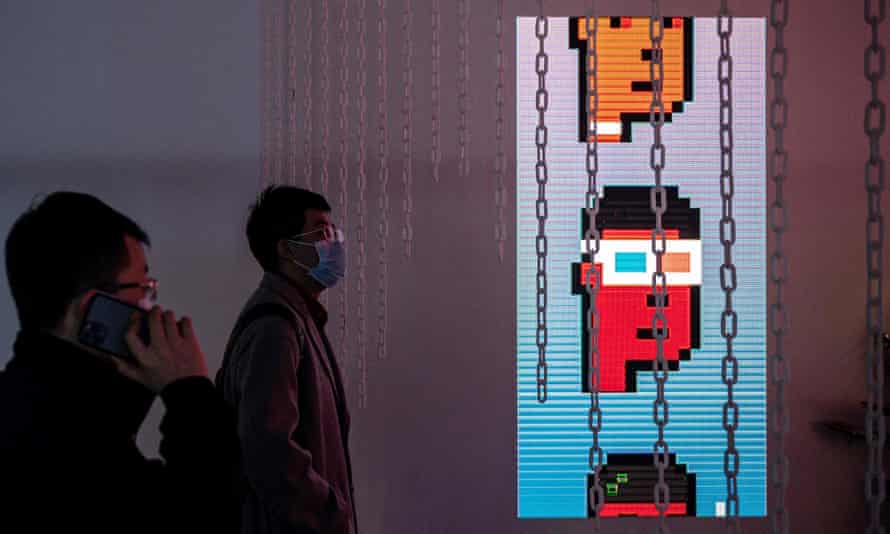Flavia Kenyon

Cyberspace is one huge, unregulated mess. A virtual wild west where sophisticated criminal gangs ply their trade alongside multinational companies, spy agencies, activists, celebrity influencers – and nation states. The question of who governs it is one of the biggest of our time.
Britain needs to be, if not quite ruling the waves, at least a global force for good in the expanding virtual world. The issue has never been so pressing. Six years ago, I acted for a coder in the biggest cyberfraud phishing case in the UK. The malware my client and others created was so sophisticated that the police could not decode it but were able to show it was used for fraud. The financial data harvested was stored on two servers, one in France and one in the US, and the lack of international cooperation meant law enforcement never got their hands on it.
The case is almost ancient history in cyber terms. Today, that same sort of malware is being used on a previously unimaginable scale in ransomware attacks targeting national infrastructures, such as the US oil pipeline operator Colonial last month, the NHS in 2017, and even the city of Baltimore.
Dominic Raab, the foreign secretary and the nearest we have to a cyber minister, signalled his determination to make Britain a global tech superpower, protecting the most vulnerable countries in the world, during a landmark cyber summit in London in May. But the signs are there that his government hugely underestimates the scariest cyber scenario of all: the possible fragmentation of the internet.
Raab said that Britain must shape cyberspace according to “our values”, while preventing China, Russia and others from “filling the multilateral vacuum”. What does he mean? It all sounds so abstract, so removed from our daily lives.
What he is referring to is the invisible battle for control of cyberspace and the ideological imperative that we, the liberal democracies, emerge triumphant, to imbue the rest of the world with “our values”.
As part of that mission, Raab announced a £22m investment in a British-funded cyber-operations hub in Africa, hoping that the continent might be charmed into playing cyber ally. The bad news is, Africa has already found a partner.
It has been showered with Chinese investment for decades. As I write, Beijing is planning to lay undersea cables along Africa’s western and eastern coasts to provide internet access to previously neglected towns and villages. Connectivity sounds like progress, and many in Africa are understandably pleased.
But here’s the problem: the Chinese are building their own internet, in a potential fragmentation that has been called the “splinternet”, an alternative cyberspace in which Britain does not even get a look in, unless invited. Many developing countries are likely to sign up to it.
The blockchain would become a superpowered tracking device and a warehouse of data on an unimaginable scale
The Chinese version of cyberspace would be separate and ideologically distinct. Beijing is not interested in improving the existing internet in an interoperable and open way, or helping the world become more resilient to cyber-attacks. It is engaged in creating a completely different digital architecture, complete with its own ideological governance and values – and incompatible with our own.
In building this architecture, the Chinese have turned to an unlikely freedom-loving technology: blockchain. It’s a word that baffles many people. But it’s simply a decentralised, digital network made up of blocks of data stored on nodes – and all our laptops could be nodes linked in a chain, which means we are all connected without censorship or interruption.
Part of the attraction of blockchain is supposed to be that it is a peer-to-peer system with no intermediaries and, crucially, no central power. But China plans to subvert that because the Chinese state would own the blockchain, and have its agents operating each node. The Chinese Communist party would have the power to monitor every communication in perpetuity.
The blockchain would become a superpowered tracking device and a warehouse of data on an unimaginable scale. How is Britain’s African cyberhub going to help prevent all that?
Any country signing up to China’s splinternet would almost certainly expose its people to the same levels of state control. For some leaders, that would be tolerated as a byproduct of China’s technological benevolence, as Beijing hands out free internet to Africa. To others, it would be welcomed as an opportunity to subjugate their own people. It would, in effect, herald the beginning of a new cold war-style split, not between east and west, but between an open and free internet, and one used to control and oppress.
It’s a grim vision, but one which China seems to be embracing with determination. Another manifestation is its potential for fiscal surveillance, by way of its new digital currency, the state-backed, digital yuan, controlled by the People’s Bank of China.
Raab’s vision of Britain “shaping cyberspace according to our values” is laudable, but in such a swiftly fragmenting cyber landscape, in which China has the tools and the desire to dominate the world community, he is in danger of sounding rather quaint.
No comments:
Post a Comment